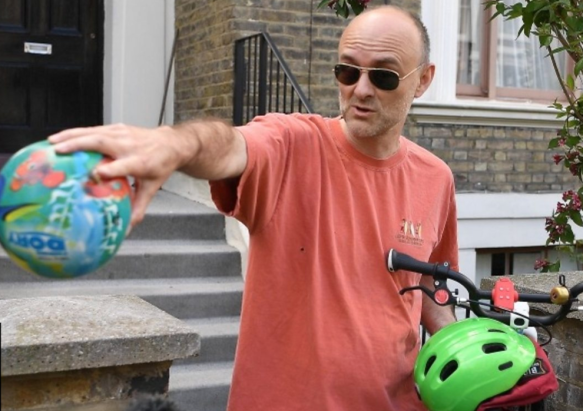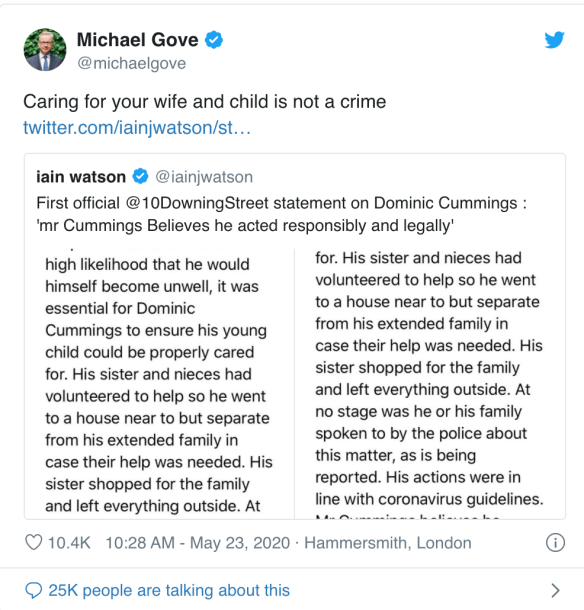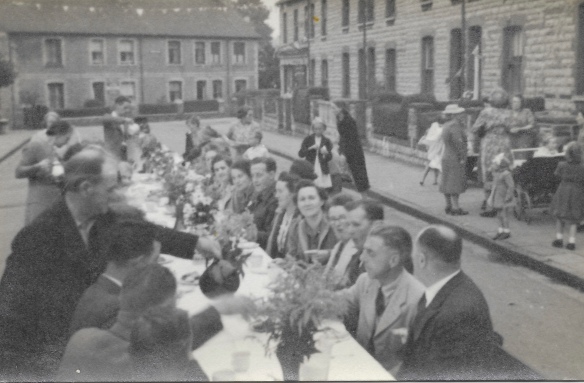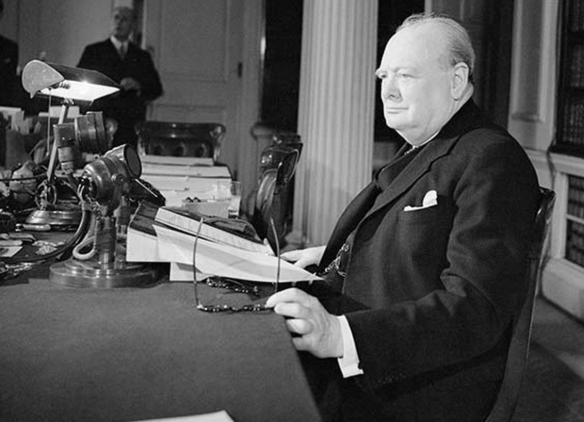I blogged in March how the UK government’s confused communications about coronavirus were risking lives. (Careless talk costs lives.) Sadly, things have not improved.
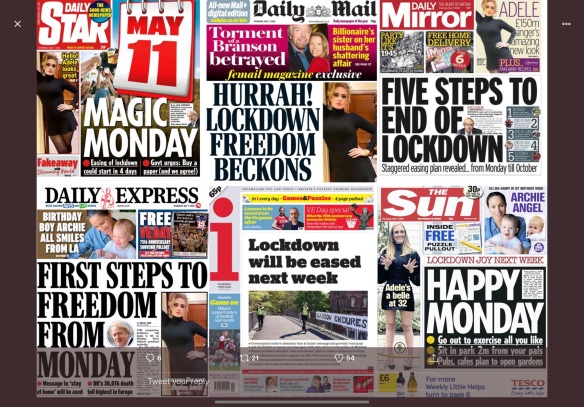
False hopes
These were the headlines in the UK national press on Thursday. A nation straining under lockdown got a clear signal that freedom was beckoning. The hope raised is likely to be cruelly dashed when Boris Johnson announces whether the government is to make significant changes to lockdown rules for England. That seems unlikely with COVID-19 still far from contained.
Those headlines didn’t happen by accident. They would have been based on briefings from the government’s PR teams. This was carelessness – recklessness even – ahead of a warm bank holiday weekend marking the 75th anniversary of VE Day. Caution was needed. Sure enough, the following day’s headlines marked a gut-wrenching handbrake turn:
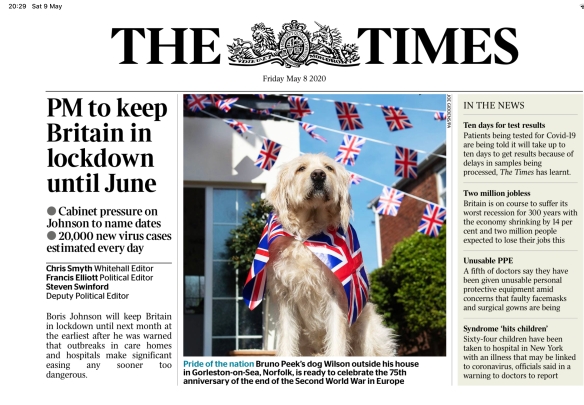
How could Boris Johnson have allowed this to happen? In a health crisis, words matter. The UK government has failed to apply the basic rules of crisis communications. What a contrast to the way the Scottish and Welsh governments have done things. They have been clear and consistent. You can sense the frustration in Holyrood and Cardiff Bay at the failures in London.
Matthew Parris in The Times (paywall) today brilliantly summed up the prime minister’s failure to lead and communicate. In his column, he captured the bumbling prime minister in the Commons as he struggled to string a thought together, never mind a sentence:
“The prime minister: “A-a-as I think is readily apparent, Mr Speaker, to everybody who has studied the, er, the situation, and I think the scientists would, er, confirm, the difficulty in mid-March was that, er, the, er, tracing capacity that we had — it had been useful … in the containment phase of the epidemic er, that capacity was no longer useful or relevant, since the, er, transmission from individuals within the UK um meant that it exceeded our capacity. … [A]as we get the new cases down, er, we will have a team that will genuinely be able to track and, er, trace hundreds of thousands of people across the country, and thereby to drive down the epidemic. And so, er, I mean, to put it in a nutshell, it is easier, er, to do now — now that we have built up the team on the, on the way out — than it was as er, the epidemic took off …”
Cruel but accurate. Johnson long ago perfected his persona as a bumbling, rather chaotic player. This seemed to provide a front for a man who was actually ruthlessly ambitious. Yet, now, we wonder whether it’s not an act after all – that, to quote Gertrude Stein, “There’s no there there”. Matthew Parris asks in The Times today whether Johnson is actually up to the job. He says:
“We need to be persuaded that the leader is leading: in charge, across his brief, able to bang heads together and when key decisions loom, equipped and ready to take them.”
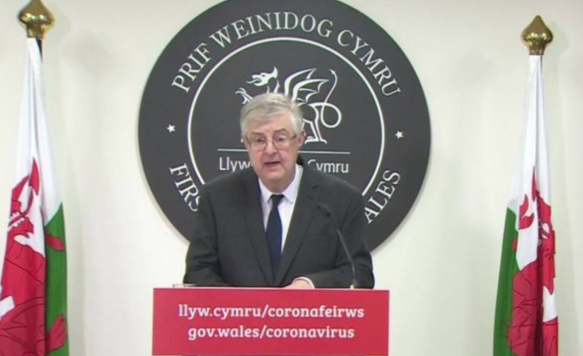
Wales takes the lead
It’s clear that the first ministers of Wales and Scotland have decided they cannot afford to allow London to lead coronavirus communications. True, Mark Drakeford and Nicola Sturgeon come from rival parties with little time for Old Etonian bluster. And Sturgeon in particular has an agenda to show that Scotland is better going its own way. But they have their own responsibilities in their respective nations. Drakeford announced on Friday only “modest” changes to the coronavirus lockdown in Wales, warning it was “too soon” to go further. That has to be right. Why did London not do the same? Why did Johnson delay his announcement until Sunday? It’s hard to imagine any new trends or data emerging over the weekend to justify a major change.
As Matthew Parris concludes, “This crisis is a flight into the unknown and we need the captain to stop the blustering and talk to us like grown-ups”.
Testing, testing
It’s clear now that the government seriously blundered over its target of providing 100,000 COVID-19 tests a day. At the end of April, it triumphantly trumpeted that it had reached that target on the last day of the month. But suspiciously, it then failed to meet the target on every single day of the following week. It’s hard not to conclude that the government was playing games. That’s the last way to govern and communicate during the greatest health crisis for a century.
The failures to keep promises to provide tests and personal protective equipment for NHS staff and carers recall an episode early in Churchill’s wartime premiership, recounted in Erik Larson’s superb new book The Splendid and the Vile.
Talking to a general recently evacuated from Dunkirk in 1940, the prime minister commented, “I assume then that your Corps is now ready to take the field?” The reply: “Very far from it sir. Our re-equipment is not nearly complete…” Churchill, taken aback, checked the reports that claimed that the general’s division had been replenished. The general gave a devastating retort: “That may refer to the weapons that the depots are preparing to issue to my units, but they have not yet reached the troops in anything like those quantities”. At that, according to Larson, Churchill was almost speechless with rage and threw the misleading reports across the table towards the chief of the imperial general staff. Winston wasn’t interested in massaging figures; he was outraged that the troops hadn’t got the equipment that the reports claimed had reached them. If only Churchill was in charge in 2020.
Boris Johnson could learn a lot from his hero, who became prime minister 80 years ago today. As I blogged on the anniversary 10 years ago, our greatest premier reflected:
“As he returned from Buckingham Palace as prime minister, Churchill had tears in his eyes as he told his detective that he was very much afraid it was too late. “We can only do our best.” But as we went to bed at 3am the following day, he reflected a profound sense of relief. “I felt as if I were walking with destiny, and that all my past life had been but a preparation for this hour and this trial.”
